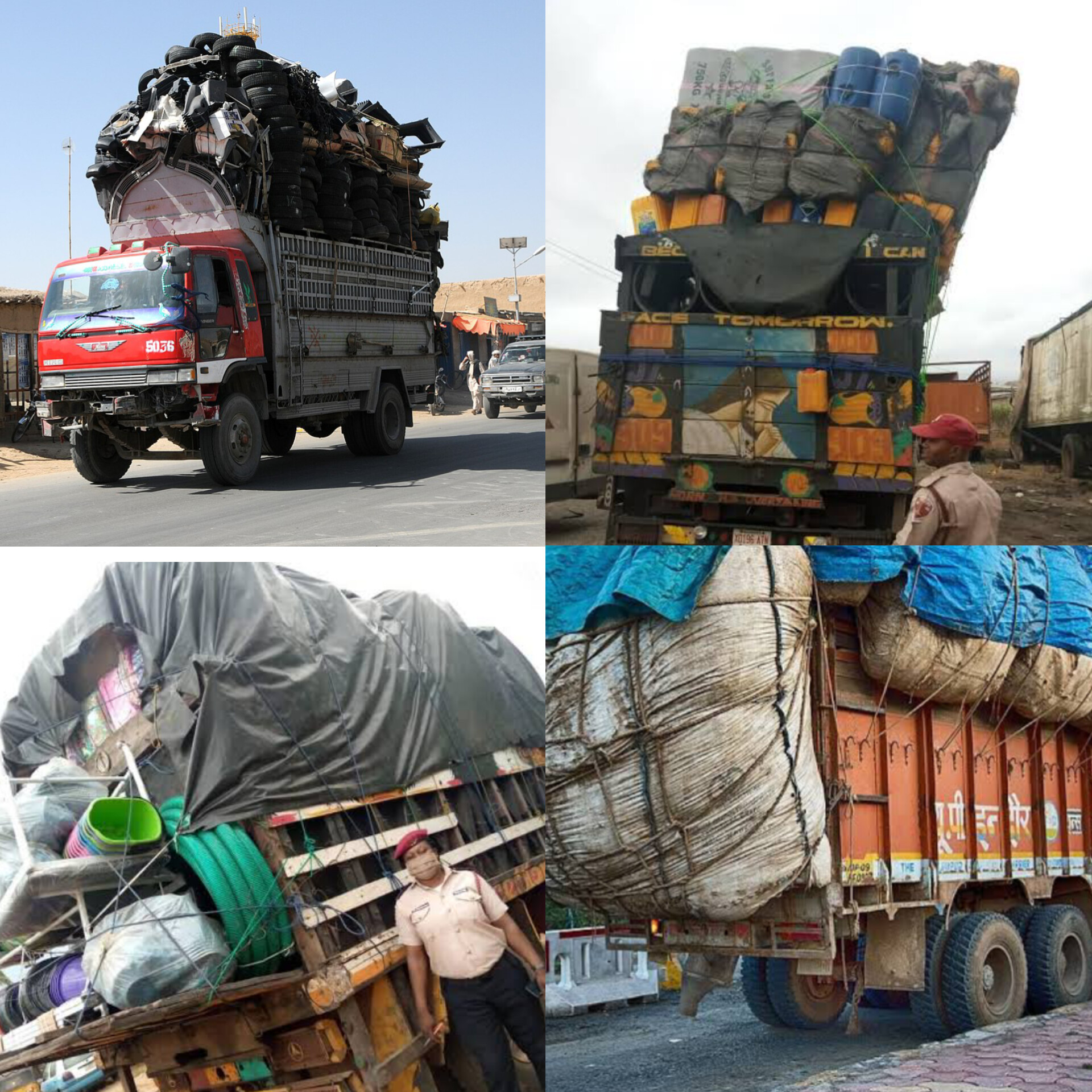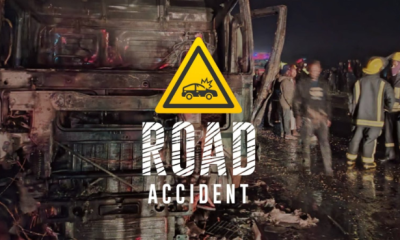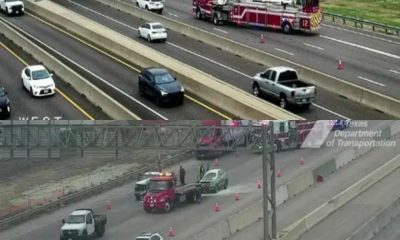Crash News
Why Overloading Is Silently Killing Nigeria’s Roads And Its Drivers

Every day, thousands of overloaded trucks and buses travel Nigerian highways. While they may help move goods and people faster, they are silently destroying road infrastructure and putting lives at risk.
Also Read: TATA Bus Almost fell into a Lagoon due to Overloading
According to FRSC 2025 mid-year data, overloading contributes to nearly 15% of road crashes involving heavy vehicles.
How Overloading Damages Roads
Excessive Axle Load
- Most Nigerian highways are designed for standard axle loads of 8-10 tonnes.
- Overloaded trucks often exceed this by 30-50%, leading to road rutting, cracks, and collapse.
Shortened Road Lifespan
A road meant to last 10-15 years can fail in 2–3 years when subjected to overloaded traffic.
How Overloading Endangers Drivers
Brake Failures
- Heavy loads increase stopping distance.
- Brake systems overheat and fail on descents.
Rollover Risks
- Overloaded trailers have higher centers of gravity, making them unstable during sharp turns.
Roadside Hazards
- Collapsed truck beds and lost cargo create sudden road obstructions.
Roads Worst Affected by Overloading
- Lagos-Ibadan Expressway (container trucks, cement trailers)
- Benin-Ore-Sagamu Expressway (petroleum tankers)
- Abuja-Lokoja Highway (grain, cattle trucks)
Lessons from Other Countries
- South Africa: Weighbridges installed along major freight routes with heavy fines.
- India: GPS tracking of cargo weight for long-haul trucks.
- Kenya: Strict penalties for overloading plus roadside cargo inspections.
RoadKing.ng Recommendations
Problem – Solution
Axle load violations More weighbridges & consistent FRSC monitoring
Poor enforcement Digitize ticketing to prevent bribe loopholes
No truck rest stops Create designated parking areas for overloaded truck offload
Public risk awareness Campaigns to discourage booking overloaded passenger buses
Conclusion
Overloading is more than a road maintenance issue, it’s a life-and-death safety concern. Strict enforcement and smarter logistics planning can protect roads and save lives.


















